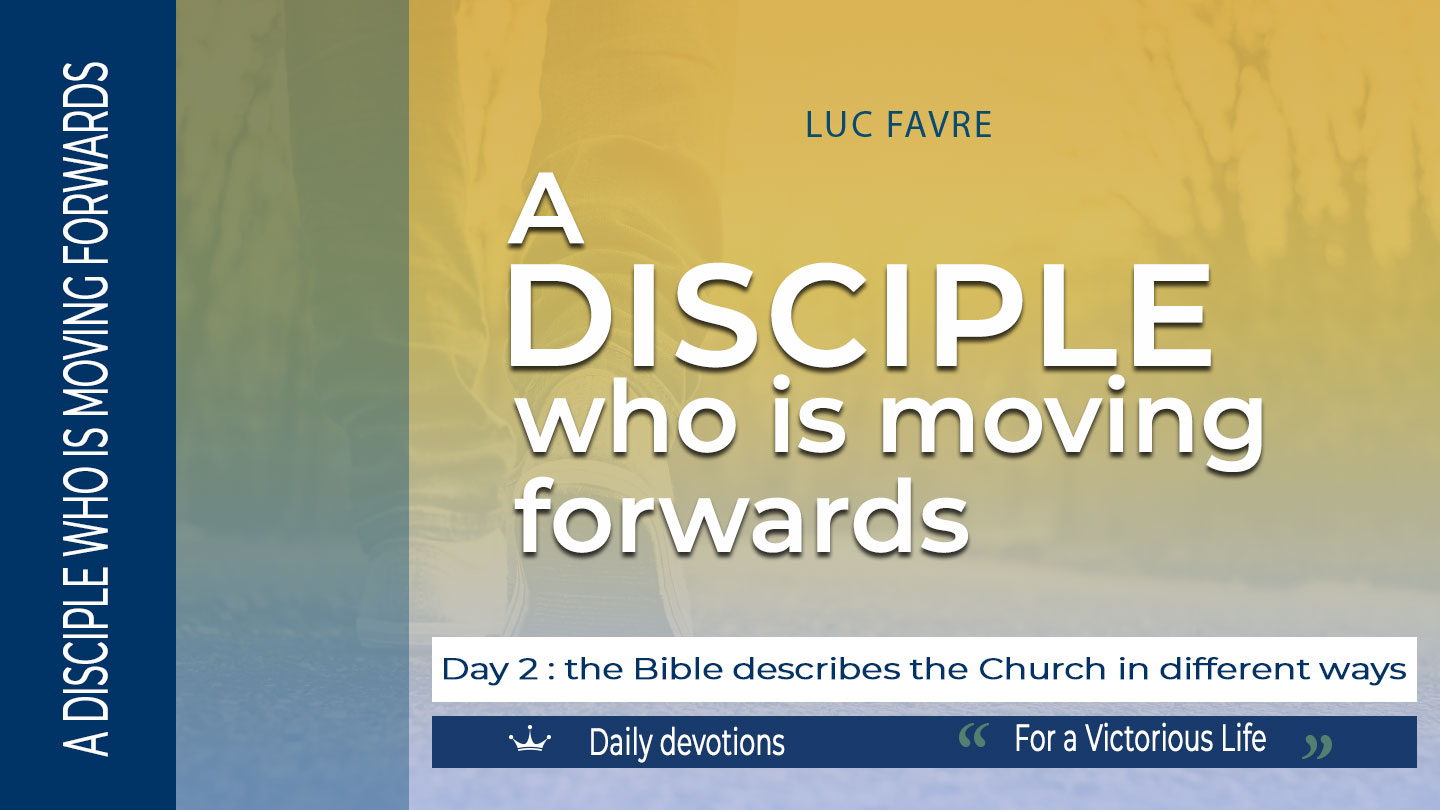The Church - Disciples Who Grow and Multiplyનમૂનો


The Bible describes the Church in different ways
REFLECTIONS:
Read Ephesians 1:22-23 and 2:20, Matthew 16:18, Romans 9:26 and Galatians 4:5-6 and take some time to answer the following questions:
➤How do these texts describe the Church?
➤What do you think these different names mean and what does that imply for us, today?
In Matthew 16:18, Jesus said, “I will build my Church”. There are several lessons to learn from this statement. First, we learn that the Church belongs to God and no one else. He is the Church’s sole proprietor. The Church exists for Him, to serve His purposes. Nobody has the right to claim ownership of the Church or use it for their own purposes and objectives. We are the Church – those of who serve His vision. It’s about His mission, not ours. Whatever our level of responsibility, we must be careful not to say things like “it’s my church”, “it’s my vision” or “it’s my ministry”. If you say such things, you’re actually seeking to build yourself, instead of His Kingdom. Furthermore, we are not called to build His Church, but to make disciples. God is the only builder, so if we think it’s our duty to defend God by protecting the honour of the Church, we are quite mistaken. We do have a duty, though, to stay close to Him so that we can do His will and be disciples who reflect His nature and His love, because that is how He builds His Church.
Paul also compares the Church to a temple, in which Jesus Christ is the foundation and the apostles and prophets are the cornerstone. This implies that certain people participate in Jesus’s ministry of building His Church. Paul, for instance, describes himself as a wise builder (cf. 1 Corinthians 3:10-11) while acknowledging that Jesus is always the only foundation. This foundation is the revelation of who Christ is, and this revelation is produced through intimacy with Him. That’s why Jesus told Peter that He would build His Church on the revelation that Peter had received – the revelation that Jesus was the Christ, the Son of the living God. To experience the Church, we do not need our wisdom or our human intelligence; we need the revelation that Christ gives us. By referring to a temple, Paul is also telling us that God’s desire is for His glory to dwell continually in His temple, the Church. That is why the Church must be made up of a group of people who experience the glory of God and supernatural power in all its fullness whenever they meet. Coming together to celebrate God is never dull or religious. Quite the opposite: it is a time of joy and celebration.
The Church is still presented to us as a house, in other words, as a family. The Church, more than anywhere else, is therefore a place of life and freedom. When we meet Jesus and we enter into the spiritual reality of His house, we feel “at home” for the first time in our life. We find ourselves in an environment where we are free to be ourselves, without trying to play a role or to prove anything. When the Church is experienced as a loving community built on the love of Christ, it is a source of healing and reconciliation for men and women whose lives were broken because they were separated from the heavenly Father’s love.
Lastly, the texts we have read liken the Church to a nation. This implies that our membership of the Church of Jesus Christ gives us a new identity. It doesn’t mean that we lose our cultural and national identity, but we become, first and foremost, citizens of the Kingdom of God. Even if you are stateless – that is, a person with no nationality – you can have your name written in the registers of heaven. You might have lost your rights on this earth, but the fact remains that you have received the authority of a child of God and your Father is the King of Kings.
Being a member of His Church is a wonderful privilege that He has given us simply because He loves us. This encourages us to take our place and to fully experience the reality of the Church in our relationship with Christ, with others and with the world. Take some time to reflect upon everything you have just read about the Church and what it means in your everyday life.
MY DECISION:
➤How this applies to my life:
➤My response to what I’ve learned:
➤ What you decide today will determine who and what you will become tomorrow!
Translation of an excerpt from Un disciple en marche by Luc Favre, published by Vie Victorieuse. All rights reserved.
About this Plan

We know that the Church is not a building, but people. Too often we limit the Church to what people do in the building. Jesus never asked us to make disciples of Christians, but of all nations. Through this plan you will discover how to be the Church where God has placed you for His kingdom to come.
More









